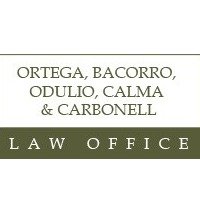Best Lawsuits & Disputes Lawyers in Philippines
Share your needs with us, get contacted by law firms.
Free. Takes 2 min.
Or refine your search by selecting a city:
List of the best lawyers in Philippines

Dagsaan Monterde Castillo Law and Notary Public (DMC LAW)
15 minutes Free ConsultationPhilippines Lawsuits & Disputes Legal Questions answered by Lawyers
Browse our 1 legal question about Lawsuits & Disputes in Philippines and read the lawyer answers, or ask your own questions for free.
- How much is the fee for filing cyber libel case
- Wanted to file cyber libel i have all the evidence gathered to proved that Ive been humiliated publicly online and to my work place
-
Lawyer answer by Recososa Law Firm
Hello: If this incident happened within the Philippines, you may file a criminal complaint for Cyber Libel under Section 4(c)(4) of Republic Act No. 10175, also known as the Cybercrime Prevention Act of 2012, in relation to Article 355 of...
Read full answer
Philippines Lawsuits & Disputes Legal Articles
Browse our 2 legal articles about Lawsuits & Disputes in Philippines written by expert lawyers.
- Recognition of Foreign Divorce in the Philippines - Steps
- A foreign divorce is not automatically recognized in the Philippines; it requires a court process called a Petition for Judicial Recognition of Foreign Judgment. Article 26 of the Family Code allows a Filipino spouse to remarry if their foreign spouse successfully obtained a valid divorce abroad. You must prove both... Read more →
- What to Do if Your Small Business Is Sued in Philippines
- Strict Timelines: In the Philippines, you generally have 30 calendar days to file a formal "Answer" after receiving a summons; failing to do so can result in a default judgment against your business. Small Claims Threshold: Disputes involving money claims of PHP 1,000,000 or less are handled in Small Claims... Read more →
About Lawsuits & Disputes Law in Philippines
In the Philippines, the legal landscape governing lawsuits and disputes is shaped by a combination of civil law inherited from Spanish colonial rule and common law practices influenced by the United States. This hybrid system offers a structured approach to resolving both civil and commercial disputes. The court system is tiered, with the Supreme Court at the top, followed by the Court of Appeals, Regional Trial Courts, and other special courts. The primary legislation governing civil procedure in the Philippines is the Rules of Court, which outlines the steps and requirements for initiating and managing lawsuits.
Why You May Need a Lawyer
Legal assistance in lawsuits and disputes is often crucial for a variety of reasons. Common situations include breach of contract, property disputes, family law issues such as divorce or custody battles, corporate disagreements, or personal injury claims. Lawyers can provide vital assistance in interpreting complicated laws, representing you in court, negotiating settlements, and ensuring compliance with procedural requirements. Additionally, they can serve as mediators to help prevent matters from escalating into full-blown lawsuits, potentially saving time and money.
Local Laws Overview
The legal framework for handling disputes in the Philippines is governed by several key pieces of legislation. Notably, the Civil Code of the Philippines regulates civil and family disputes, while commercial disputes are often addressed under the Corporation Code and other business-related laws. The Barangay Justice System offers an alternative dispute resolution mechanism, where issues are first brought before a barangay (village) committee for mediation. Understanding the prescribed legal processes, statutes of limitations, and jurisdictional thresholds is crucial for effectively addressing and resolving disputes.
Frequently Asked Questions
What is the first step in filing a lawsuit?
The first step in filing a lawsuit in the Philippines is usually to file a complaint with the relevant court or tribunal. This document should clearly outline the facts of the case, the legal grounds for the complaint, and the relief sought.
How long do I have to file a lawsuit?
The time limit, or statute of limitations, for filing a lawsuit varies depending on the nature of the case. For instance, personal injury claims usually have a one-year deadline, while written contract disputes can go up to ten years.
What is the role of mediators in disputes?
Mediators facilitate communication between parties to help them reach a mutually agreeable solution without going to court. Mediation is often quicker and less expensive than litigation.
Can I represent myself in court?
Individuals are allowed to represent themselves, but it is often advisable to have legal representation, especially in complex cases, to ensure your rights and interests are adequately protected.
How are court fees determined?
Court fees in the Philippines vary based on the nature and amount of the claim. They generally cover the filing, docket, and other administrative fees needed to process a case.
What types of evidence are admissible in court?
The law allows various types of evidence such as documentary, testimonial, and physical evidence. All evidence must adhere to the rules of admissibility and relevance outlined in the Rules of Court.
How can I enforce a court judgment?
Once a favorable judgment is issued, the winning party can seek enforcement through court-ordered writs, which authorize actions like property garnishment or asset seizure to satisfy the judgment.
What happens if the other party is non-compliant?
If a party does not comply with a court ruling, they may be held in contempt of court, which can result in fines or imprisonment until compliance is achieved.
Are there alternative dispute resolution options?
Yes, apart from traditional litigation, parties can opt for arbitration, mediation, or conciliation, each offering a unique set of advantages in terms of process and outcome.
What should I do if I receive a summons?
A summons indicates that a lawsuit has been initiated against you. It is important to respond promptly by consulting a lawyer to prepare your defense or settlement strategy.
Additional Resources
For further assistance on lawsuits and disputes, the following resources may be valuable: the Philippine Judicial Academy, the Office for Alternative Dispute Resolution under the Department of Justice, and the Integrated Bar of the Philippines. These organizations offer various services and publications that can help deepen your understanding of Philippine law and your rights within it.
Next Steps
If you seek legal assistance for lawsuits and disputes, consider contacting a qualified attorney who specializes in the relevant area of law. Prepare to provide them with detailed information about your situation. Additionally, document all interactions and communications related to the dispute and consider utilizing initial consultations, which many law firms offer for free, to explore your options and clarify any legal questions you may have.
Lawzana helps you find the best lawyers and law firms in Philippines through a curated and pre-screened list of qualified legal professionals. Our platform offers rankings and detailed profiles of attorneys and law firms, allowing you to compare based on practice areas, including Lawsuits & Disputes, experience, and client feedback.
Each profile includes a description of the firm's areas of practice, client reviews, team members and partners, year of establishment, spoken languages, office locations, contact information, social media presence, and any published articles or resources. Most firms on our platform speak English and are experienced in both local and international legal matters.
Get a quote from top-rated law firms in Philippines — quickly, securely, and without unnecessary hassle.
Disclaimer:
The information provided on this page is for general informational purposes only and does not constitute legal advice. While we strive to ensure the accuracy and relevance of the content, legal information may change over time, and interpretations of the law can vary. You should always consult with a qualified legal professional for advice specific to your situation.
We disclaim all liability for actions taken or not taken based on the content of this page. If you believe any information is incorrect or outdated, please contact us, and we will review and update it where appropriate.
Browse lawsuits & disputes law firms by service in Philippines
Philippines Attorneys in related practice areas.
Browse lawsuits & disputes law firms by city in Philippines
Refine your search by selecting a city.
















